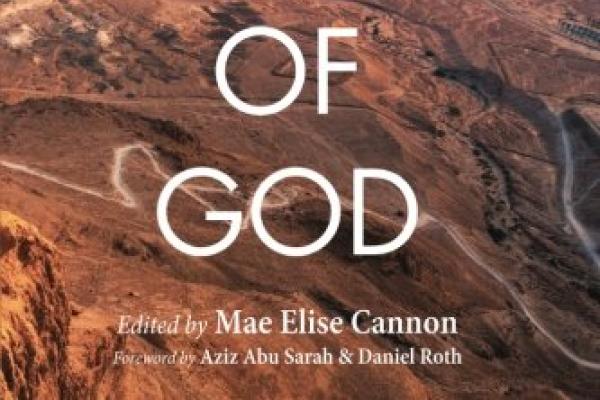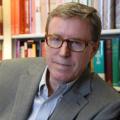IMAGINE A gathering of thoughtful American Christians, of diverse backgrounds—from Greek Orthodox to Pentecostal—and each with some experience of the conflict between the Israelis and Palestinians. If you could record their conversations, it might be the beginning of the book that is here before us.
A Land Full of God is an essay collection compiled by Mae Elise Cannon, executive director of Churches for Middle East Peace, to show a range of opinions about the Israel-Palestine conflict in the American church. The writers share a general understanding that peacemaking is the only way forward. Some admit they are exhausted by this conflict. Many express despair over the extremist voices that seem to push the U.S. church around. And a few have suggestions for what might make a difference.
In one of the book’s liveliest essays, Paul Alexander sums up key points: 1) Israel must end its military occupation of the Palestinians and be less violent. 2) Palestinians need to recognize the state of Israel and stop vilifying Jews. 3) Christians need to give a rest to appeals to eschatology in this entire mess. Alexander sounds exasperated and pragmatic, feelings many of us share.
If you’ve had much contact with this topic, it is impossible to read such a book with any neutrality. My own experience in this region began about 35 years ago and has continued unabated. It led to writing a lengthy historical-political book (Whose Land? Whose Promise? 2013) and one dealing with theology (Jesus and the Land, 2010). Like Alexander, I can despair at the intractability of some of the players. As is sometimes true in this book, many of us write or speak only to our constituencies and don’t listen to what the next person has to say. Or we speak from self-interest or a sense of ethnic entitlement. Fortunately, Cannon has gathered writers who at least try to listen and seek a third way beyond the dominant bimodal debate on this conflict.
Personal opinions and stories dominate the book, a limitation if you are looking for complex theological insight or careful historical or political discussion. These are reflections, often passionate reflections, about how to think differently. But when theological reflection is found, it is limited to readings of the Bible that have real Zionist echoes (Judith Rood, Michael Brown, John E. Phelan Jr., Susan Michael). This really is fine. But I sought in vain for a theological presentation that might give these voices a run for their money, showing that a different theological take on the Bible is common. Several of these writers express sympathies for Palestinian suffering (Desmond Tutu, Paul Alexander, Bob Roberts, Andrea Smith), but none respond to those who claim a theological call for Israeli exceptionalism based on a reading of the Bible.
Some voices also seem to be missing. A Land Full of God offers centrist perspectives that could make you wonder what all the fuss is about, rather than strongly voiced advocates on one side or the other. A helpful volume like this might be organized with strong Christian voices for Israel, strong Christian voices for Palestine, and centrist voices that can hear these other calls, critique them, and then plot a third way of peacemaking.
Nevertheless, Cannon has served us richly in this day of loud partisanship, where seemingly no opinion may be gently whispered, with this collection of Christians who bring wisdom, patience, hopefulness, and reason to an otherwise unreasonable situation. We need this tone for the Israel-Palestine conflict just as we need it in our U.S. national politics.

Got something to say about what you're reading? We value your feedback!

